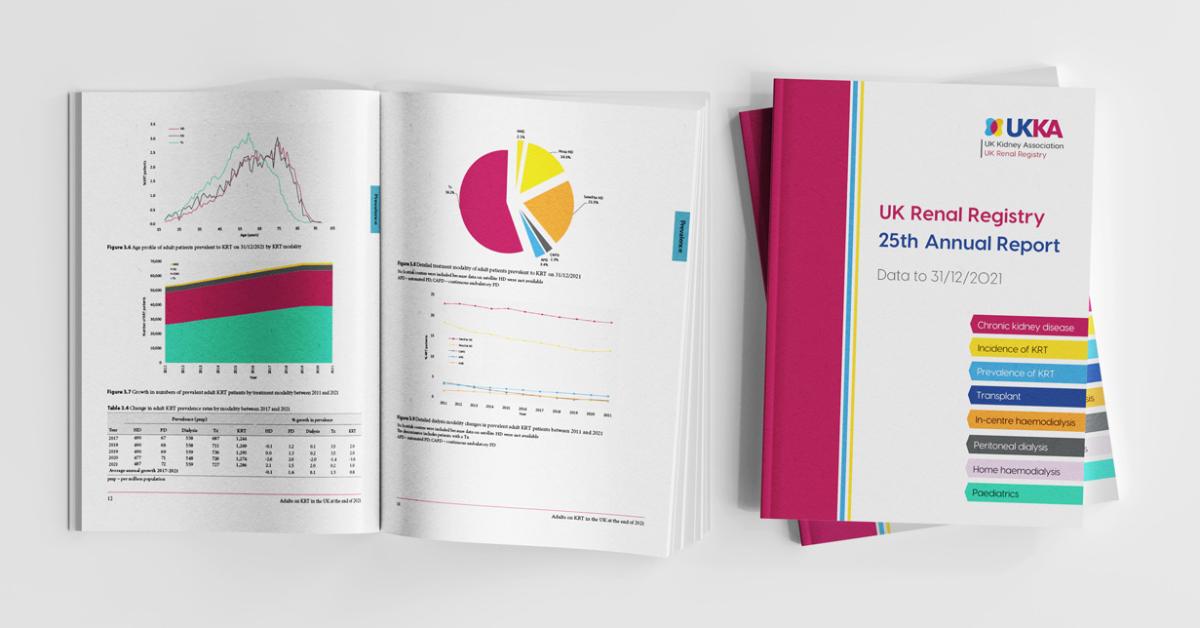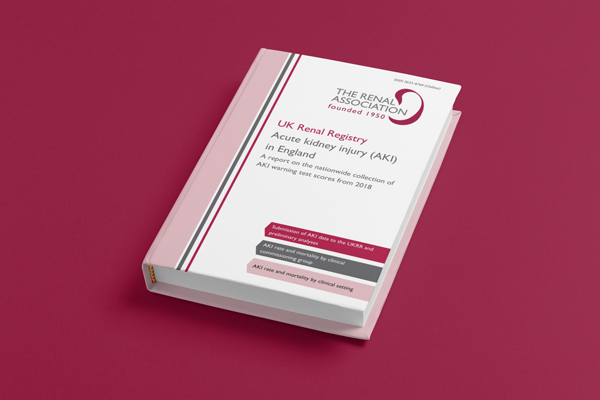Identifying patients with CKD stage G3
Patients with an eGFR of 15-29 ml/min/1.73m2 have CKD stage G4 which represents significant impairment of kidney function.
Patients with an eGFR of <15 ml/min/1.73m2, or who require some form of dialysis, have CKD stage G5 which is often referred to as End-Stage Renal Failure (ESRF). This CKD stage represents patients with the lowest level of kidney function.
Creatinine and eGFR in an individual are usually quite stable. Deteriorating renal function needs rapid assessment.
Note that CKD staging and management outlined below are only applicable to stable renal function.
Initial assessment of CKD stage G4
Initial assessment is identical to CKD Stage G3 but, in contrast to Stage G3, referral to or discussion with a specialist service will be usual. Exceptions to ‘always refer or discuss’ may include patients in whom:
- Severe renal impairment is part of another terminal illness
- All appropriate investigations have been performed and there is an agreed and understood care pathway
- Further investigation and management are clearly inappropriate.
If assessment is precipitated by a first discovery of an elevated serum creatinine level it is important to ensure that the renal function is stable. Previous blood tests, if available, will give you the answer. If no previous blood tests are available, and the patient is well with no other worrying features (e.g. high potassium, symptoms of bladder outflow tract obstruction, severe hypertension), repeat the test within 14 days. Patients with deteriorating renal function require rapid assessment.
In addition to referring these patients for specialist assessment in the majority of cases, patients should be evaluated with particular reference to the following points:
- Clinical assessment – If the patient is clinically unwell, consider telephoning for advice and to discuss expediting specialist assessment. Undertake an assessment of volume status (i.e. hypo- and hyper-volaemia) and for symptoms or signs suggestive of renal tract obstruction (e.g. a palpable bladder).
- Medication review – any potentially nephrotoxic drugs, or drugs that need dose alterations when GFR reduced? Remember non-prescribed and over the counter medications, e.g. NSAIDs.
- Urine tests: dipstick for blood and quantitation of proteinuria by ACR/PCR. Presence of haematuria or proteinuria may suggest intrinsic renal disease (in contrast to pre- or post- renal disease).
- Blood tests: K, Ca, PO43-, Hb.
- Imaging – It is recommended to have a low threshold for performing an ultrasound scan in these patients to rule out a structural explanation and to provide additional clues about the aetiology and chronicity (i.e. renal size, cortical thickness, cortico-medullary differentiation). Consider requesting a scan urgently if there is a strong clinical suspicion of obstructive uropathy or prominent lower urinary tract symptoms. Consider requesting imaging at the same time as referring the patient for specialist assessment. (i.e. ordinarily referral to renal services should not be delayed pending the results of imaging studies).
Management of CKD stage G4 and G5
In the majority of cases, the ongoing management of these patients will either be undertaken or closely supervised, by a renal specialist. The aims of management for patients with CKD stages G4 and G5 are to try and slow the progression of CKD, identify and treat the complications of CKD, reduce the incidence of cardiovascular disease and to allow timely and informed decision making regarding the management of end-stage renal failure.
Typically patients will be assessed, often through a combination of patient-clinician encounters and/or blood test, on a 3-4 monthly basis. The frequency of review will be determined by factors such as the rate of progression, the patient’s comorbidities, the severity of the renal impairment and the associated complications of CKD.
Factors which should be monitored and addressed in these patients include:
- Potassium levels – hyperkalaemia that is severe or not responsive to changes in therapy should lead to discussion or referral. Medications are often contributory in this setting.
- Bicarbonate level – bicarbonate levels fall as renal function declines. Sodium bicarbonate is often used in these patients.
- Haemoglobin – if low, exclude non-renal causes. Management of “renal” anaemia can include the provision of iron and the use of erythropoiesis stimulating agents. (see more on anaemia)
- Ca and phosphate – Secondary hyperparathyroidism is frequently encountered in these patients. Management is multifaceted and can include dietary phosphate restriction, the provision of ‘activated’ (1α-hydroxylated) vitamin D and oral phosphate binders. (see more on calcium, phosphate and bones).
- Urinary protein – monitor with ACR or PCR.
Blood pressure – Aim to keep the BP <140/90. In patients with CKD and diabetes or an ACR>70 mg/mmol aim to keep BP<130/80. (see more on hypertension) - Cardiovascular risk – offer advice on smoking, exercise and lifestyle. Consider offering Atorvastatin 20 mg nocte for the primary and secondary prevention of cardiovascular disease. (see more on Cardiovascular disease).
- Fluid Status- Salt and water retention is common in patients with impaired kidney function. Worsening of fluid retention may require initiation or up titration of diuretics and can precipitate the need to commence renal replacement therapy.
- Immunisation – influenza and pneumococcal vaccinations should be given. Patients who are likely to require renal replacement therapy should be vaccinated against hepatitis B.
- Medication review – regular review of medication to minimise nephrotoxic drugs (particularly NSAIDs) and ensure doses of others are appropriate to renal function. Metformin should be avoided in patients with CKD stage G4 and G5.
Patient information – CKD stages G4 and G5
Patients with CKD stages G4 and G5 have the most severe impairment of kidney function. Treatment of these patients involves trying to preserve kidney function and managing the complications that arise in patients with poor kidney function. These patients are also at very high risk of diseases which affect the heart and blood vessels, such as heart attacks and strokes. End-stage renal failure refers to patients who have insufficient kidney function to keep them feeling well and who may benefit from treatments which take on some of the functions of the kidney, such as dialysis or a transplant.



